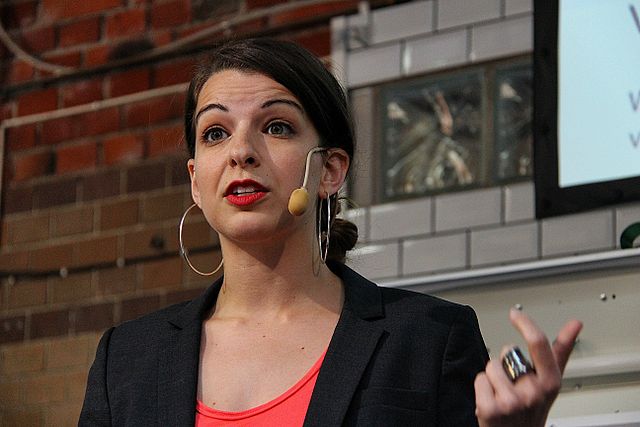Misogyny Is Not a Game
 Photo by jcjgphotography / 123RF
Photo by jcjgphotography / 123RF The recent media frenzy surrounding Gamergate, which Erik Kain explains in detail in Forbes, has brought to light once again the issue of sexism in the video and online gaming industry. To summarize, a female game developer named Zoe Quinn was accused by an ex-boyfriend of sleeping with a gaming reporter to get positive reviews for her game, which in turn has caused a re-examination of the integrity of gaming media and the way in which female developers are treated by an industry that is stereotyped as overly male.
This recent kerfuffle and the ensuing discussion about sexism in the industry and in games themselves was exacerbated by an incident involving Anita Sarkeesian, a video game critic, who reportedly received violent threats before a speech at a university and went on to cancel her appearance. Sarkeesian is known for her work critiquing the portrayal of women in gaming, and while her criticism has been lauded by some, Sarkeesian herself has been criticized by others for what they see as issues of integrity.

Anita Sarkeesian. Photo by Susanne Nilsson via Wikimedia Commons.
It’s extremely important that the issues at hand here aren’t conflated with any one individual, because how people feel about the advocates that are pushing back against sexism should always be less important than the actual fight against sexism. Those trashing Sarkeesian or Quinn, regardless of whether or not they are justified in doing so, distract gamers from what is truly important and give influential gaming industry leaders a pass on stomping out sexism and misogyny in their workforce and the actual games themselves.
The gaming industry not only needs more developers, but it needs developers with a historically marginalized perspective if the industry wants to expand and cater to the interests of all consumers. One of the best parts about gaming is that, when done well, the games themselves are a reflection of the human experience. Games can capture all of the joy and grief of life and combine this knack for inspiring emotion with an exciting narrative in which things that wouldn’t be possible in real life can occur in the game. Essentially, games show us how human existence could be if we lived in a reality that is both different and yet based on our own, which is an enormously thrilling and valuable thing.
However, the underrepresentation of the female perspective in game development means that characters are less dynamic then they could be and narratives are more male-centric. This in turn takes away from the ability of gamers to suspend their disbelief and immerse themselves in the universe of a particular game because it’s too obviously fictional.
One game franchise that gets it right is the Mass Effect series. Set in a future where humankind has discovered faster-than-light space travel and interacts with other advanced civilizations, the series gives gamers the option to play a complex female main character sans the skimpy outfit typically worn by female protagonists. (Such outfits not only paint the characters as sex objects, they also take away from the realism of games in which the outfits are supposed to be armor but only cover a female character’s breasts and genitals, leaving the rest of her body exposed). This series does a good job of treating women like human beings and shows the variety of personalities women have, just like the similarly dynamic male characters. Some of the female characters are strategic warriors, others Machiavellian politicians; some are cowards, some are just normal people, and some are even vapid or overly promiscuous.
By allowing for a variety of different female characters, both good and bad, and not relegating gamers to experience only female bimbos or damsels in distress, Mass Effect recognizes the complexity of human personalities that both genders exhibit. Not all female characters need to be heroes, especially since not all men in the franchise are brave or honorable. But by treating both genders with an equal level of consideration and recognizing their individuality and ability to be more than just the sum of their biological parts, Mass Effect creates a universe that feels much like our own, even though the actual events of the narrative may not occur in our own future.
Fiction is made immensely more powerful and enjoyable when it is grounded in reality. In games, our virtual history or future might be totally removed from our real lives, but the behavior and motivations of human characters are understandable because they are fundamentally just like us. That commonality is what interests us in playing the game, and what drives us to see how human beings would react in circumstances different from our own. Call it escapism, or a colorful use of imagination, but video games can truly be a means by which we explore all the possibilities of humanity in a safe way. We need female developers in the industry so that games can offer a fuller perspective for countless gamers worldwide.
